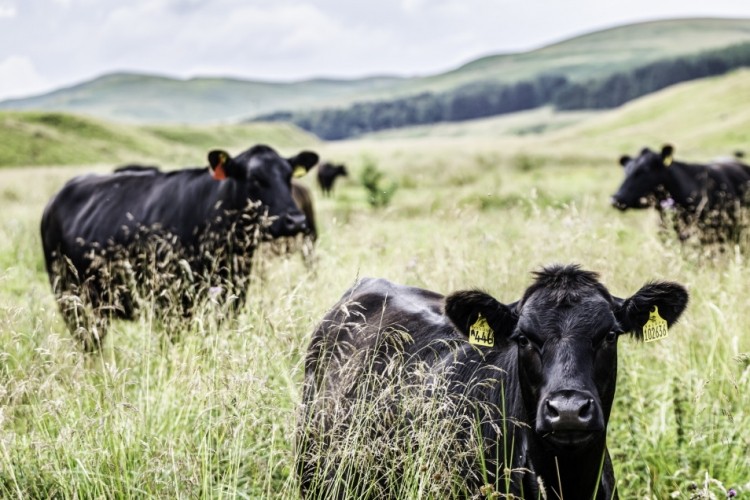DSM launches service to cut footprint of meat and dairy as market shifts to environmental impact labelling

Animal agriculture is responsible for 14% of global CO2 emissions. As consumers, regulators and manufacturers look increasingly at the environmental footprint of the food we eat, the animal protein sector will need to address its impact.
“As many supply chains and governments are moving towards a more universal model of environmental impact labelling anyway, it’s vital that animal protein producers begin to move in this direction to ensure that they start to measure and improve on sustainability, so they are not caught unprepared,” Carlos Saviani, Global Sustainability Lead for DSM Animal Nutrition and Health, told FoodNavigator.
DSM has committed to the strategic goal supporting a ‘robust and achievable global transformation towards sustainable animal protein production’. Working alongside Life Cycle Analysis and sustainability platform Blonk, the Dutch company has developed a tool that it believes can be part of the solution. ‘Intelligent sustainability service’ Sustell leverages precision animal farming and a ‘state-of-the-art’ intelligence platform connected to the Blonk APS-footprint tool.
This links to an ‘expert centre’ made up of a team of DSM and Blonk experts who partner with protein producers to assess the baseline footprint of production using actual farm and feed data.
This, Saviani explained, overcomes one of the biggest barriers to developing actionable insights – the current over-reliance on industry averages and proxy data settings.
“One of the biggest problems animal agriculture has faced is the science based measurement of sustainability. You don’t improve (nor report) what you don’t measure. The lack of specific company and farm measurements is the reason why many stakeholders are using global averages and proxy metrics to judge the sustainability of animal proteins. There are many different components that go into farming—feed, energy supplies, the output of the animals themselves, transport—that it can be quite difficult to assess their total sustainability. Sustell simplifies this measurement of environmental footprint, bringing together the world’s most advanced environmental footprint calculating tool with DSM’s expertise in animal production and nutritional knowledge,” the animal nutrition and health expert explained.
Case-specific intervention scenarios are developed using these unique, farm-specific, data sets.
“Sustell helps feed millers and integrated animal protein production companies to assess their environmental footprints at the farm level. This enables businesses to implement practical solutions to reduce their footprint in problem areas, and provides incentive for others along the supply chain to improve their sustainability practices. Sustell also provides advice on how to do this through the dedicated expert centre, with inputs from both Blonk’s independent LCA expertise and DSM’s animal nutrition and sustainability expertise. The solutions we recommend are case-specific and include third-party innovations,” Saviani said.
‘Unlocking the value of sustainability’
According to DSM, Sustell solutions will help protein producers ‘unlock the value of sustainability’.
Saviani told us that the company believes it will offer producers a tripple win: improving consumer appeal, driving down environmental footprint and boosting profitability.
“It has to be a win-win for people, profit and planet. That’s the triple bottom line concept of sustainability. Firstly, consumers are becoming more and more sustainability conscious, and metrics for environmental labelling are on the horizon in many countries. By reducing their environmental footprints now, producers all along the value chain can be ahead of these trends and show consumers that they are a conscious option.
“Secondly, many elements of unsustainable production have to do with inefficiency, waste, and animal illness. For example, if animals are unable to process nutrients well, more needs to be added to their feed, resulting in the use of more natural resources. Soy production and mining of finite resources like rock phosphorus are only two examples. If we can help them to process these nutrients more efficiently, we can spare the environment and the extra cost associated with adding these nutrients for farmers.
“Furthermore, animals will be less likely to fall unwell, negating veterinary costs, reducing the use of antibiotics or the loss of their production. Sustell provides ROI calculations on both the environmental and economic impact side by side so interventions can be prioritized.”
Precise farm-level data also provides manufacturers, retailers and food service operators with the opportunity to accurately measure the impact of their supply chains and ‘reward’ producers who are investing in sustainability efforts, he continued.
“By providing deep insights into farm-level emissions Sustell opens new possibilities for the wider value chain, including the ability to certify and incentivize sustainable farm practices. For example, retailers and financial institutions will be able to objectively manage the risks and opportunities relating to the environmental footprint of animal protein. In addition, Sustell enables farmers to accurately forecast the impact of sustainability measures on financial performance.”
























